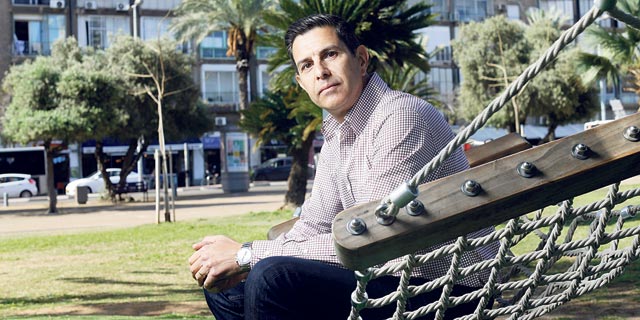
Interview
Smart City Is Just a Buzzword, Says Head of Israeli Cities Union
Eitan Atia, the general manager of Forum 15, a union of fiscally autonomous Israeli cities, believes that there is much still left to be done to make a city better before spending millions on shiny new technologies
Nimrod Busso | 13:25, 29.04.19
Without a clear definition of what it actually means, “smart city” became one of the hottest trends of municipal government and city planning over the past few years. The concept itself seems solid—the integration of new technologies and communication systems within a city to help improve the array of services provided by the local government. Eitan Atia, the general manager of Forum 15, a union of fiscally autonomous Israeli cities, is less impressed.
For daily updates, subscribe to our newsletter by clicking here.
The term smart city is first and foremost a marketing buzzword created by tech companies about a decade ago, he said in a recent interview with Calcalist. “It was the days of the dot-com crash and companies were looking for new growth opportunities, which they found in city governments that are relatively conservative entities but with a steady income stream,” Atia said. According to Atia, much is still left to be done to make a city better before spending millions on sensors, cameras, and other shiny new technologies. “Before I turn my city into a smart city, it is much more important that it will be a humane city, one that can provide a pleasant sense of urbanism, that has a vibrant public sphere, that is able to provide for the needs of all people, from toddlers to the elderly,” he explained. “What’s the point of taking a city and filling it with sensors and systems that can see me coming a mile away if when I am walking down the street in the summer I have no shade or no water fountain?” Atia asked. Though considered anything but “smart,” a water fountain means someone actually took the time to think about pedestrians that might get thirsty on a hot summer day, he added. A former fighter pilot, 50-year-old Atia is also a lawyer and has previously occupied various roles in Israel’s Ministry of Justice. He has been heading the forum, which represents the interests of 15 member cities by promoting relevant legislation, since its foundation in 2002. Members are typically more financially stable than other municipalities in Israel and include Tel Aviv, neighboring towns Herzliya and Ramat Gan, northern city Haifa, and southern desert city Be’er Sheva. Despite their relative financial advantage, Atia believes member municipalities can be vulnerable to the damages of the smart city concept. “There is a kind of competition between cities, which one is going to be smarter, which one is going to use more advanced and eye-popping technologies,” he said. “These are toys that cost a lot of money.” When a new technology emerges, cities should gather all the relevant parties—universities, research and development centers, hospitals, the chamber of commerce, residents—and start examining it to see how and if it can help achieve the city’s goals in a way that is more efficient, quicker, more economical, and less harmful for the environment, he explained. It is crucial to define clear achievable goals and then find the relevant technologies and not the other way around, Atia said. “Say my goal as a city is to increase the number of high school graduates by 5% within a decade. I should first check if there are available smart education technologies that can help, then check the available budget and see whether there is anything that can be developed in-house with the help of volunteers.”
No Comments Add Comment